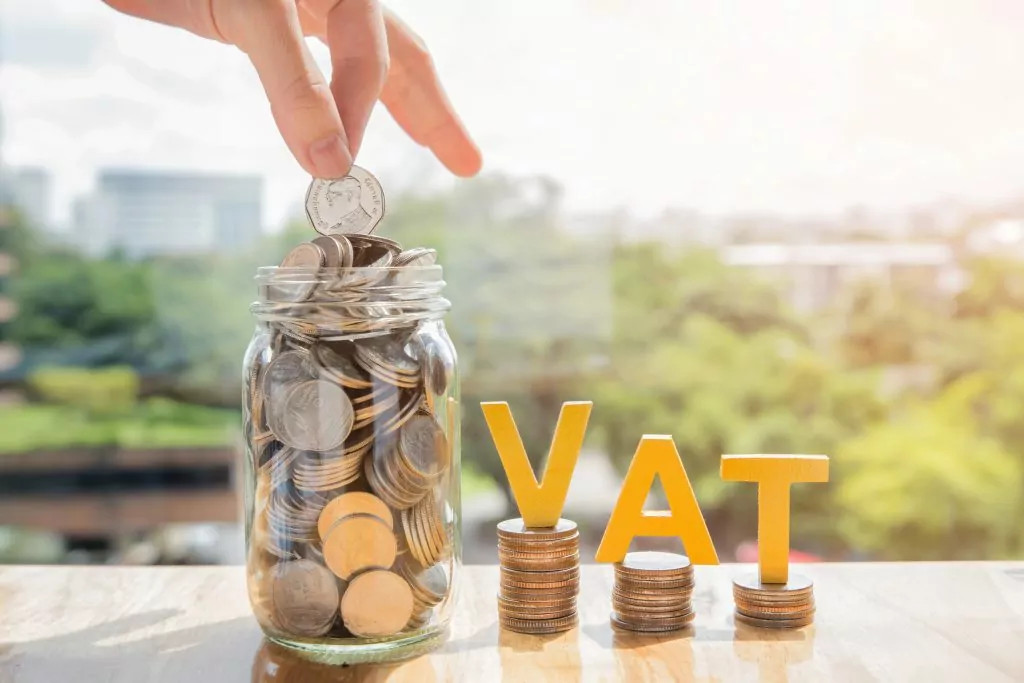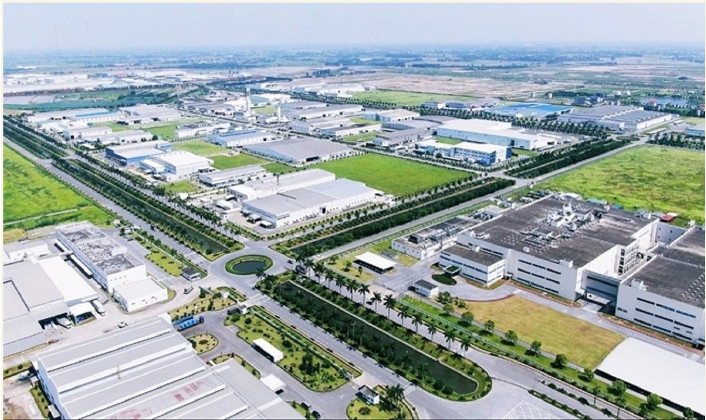NEW HIGHLIGHTS ON LABOR DISPUTES SETTLEMENT
TAKING EFFECT FROM JANUARY 1ST 2021
On November 20th 2019, the Government approved the Labor Code No. 45/2019/QH14 (hereinafter referred to as “Labor Code 2019”) which comes into effect from January 1st 2021 and will take place the Labor Code 2012. In general, the regulations of the new Labor Code tend to be more positive in ensuring the legal rights and interests of employees in comparison with the Code in force. Especially, the Labor Code 2019 has changed dramatically in the awareness of labor dispute settlement issues.
In this legal update, we reveal some of new highlights on labor dispute settlement.
1. Notion of labor disputes
- Scope of determination of labor disputes
The Labor Code 2019 stipulates in more detail the scopes and subjects of labor relations so as to determine thoroughly the signs which are under the scope of labor dispute. In particular, the new Code regulates that: Labor disputes are (i) disputes between Parties on the rights, obligations and interests which arise from the process of creating, implementing and terminating the labor relations; (ii) disputes between Employee’s Representation Organizations; (iii) disputes arising from relations directly relevant to labor relations[1].
- Classification of labor disputes
The Labor Code 2019 remains 02 types of labor disputes including individual labor disputes and collective labor disputes, but supplements several separate subjects:
- Individual labor disputes between employee and employer; between employee and enterprise or organization sending employee to work overseas under a contract; and between subleased employee and the employer who subleases the said employee;
- Collective labor disputes on rights or interests between one or many Employee’s Representation Organizations and employer, or one or many Employer’s Organizations.
In addition, collective labor disputes on rights or interests are also supplemented several cases and amended by the Labor Code 2019 as follows:
- Collective labor disputes on rights are supplemented the following cases: When the employer (i) takes discriminatory behavior against the employee or the member of the leadership due to the establishment, accedence, and operation in the Employee’s Representation Orgnization; (ii) interferes or manipulates with the Employee’s Representation Organization; or (iii) breaks the obligations on negotiation in good faith.
- Collective labor disputes on interests include the following cases:
- Labor disputes arising from collective negotiation; and
- When one Party refuses to negotiate or does not carry out negotiating in the limited time in accordance with the law.
2.Rules of labor disputes settlement
Pursuant to the Labor Code 2019, labor disputes shall be resolved right after one Party requires or competent authority, organization or individual proposes.
Therefore, from January 1st 2021, the Parties are not compulsory to implement the direct negotiation or mediation before carrying out labor disputes settlement as the stipulation in force[2]. This amendment is completely reasonable, playing a role to boost the schedule of labor disputes settlement.
3. Authority for labor disputes settlement
The Labor Code 2019 provides another agency having authority to resolve labor disputes – Labor Arbitration Council:
- Towards individual labor disputes: The new Code supplements Labor Arbitration Council to deal with labor disputes.
- Towards collective labor disputes on rights: The new Code replaces Chairman of Provincial People’s Committee with Labor Arbitration Council.
4. Prescription to request for labor disputes settlement
- Individual labor disputes
From January 1st 2021, the prescription to request the Labor Arbitration Council for labor disputes settlement is 06 months since the date that the Requesting Party discovers the infringed act impacting on their legitimate rights and interests. The force majeure event is not included in the prescription to request for labor disputes settlement in case the Requesting Party can prove that the failure in implementing the request for dispute resolution on time in accordance with the law is due to a force majeure[3].
- Collective labor disputes on rights
Instead of regulating in general the prescription to request for collective labor disputes settlement on rights is 01 year since the date that one Party discovers the infringed act impacting on their legitimate rights and interests, the new Code has some amendments and division in more detail:
- For Labor Mediator: 06 months;
- For Labor Arbitration Council: 09 months;
- For the Court: 01 year.
5. Process of labor disputes settlement
5.1 Individual labor disputes settlement of labor mediatora.
a.Cases are not compulsory to implement mediation procedures
The new Labor Code inherits the regulation of the Labor Code in force[4] and supplements 03 cases which are not compulsory to implement mediation procedures:
- Disputes on unemployment insurance in accordance with the laws on employment;
- Disputes on accident and occupational diseases insurance in accordance with the laws on labor safety and hygiene;
- Disputes between subleased employee and employer who subleases the said employee.
b. Cases that Parties can choose Labor Arbitration Council for labor disputes settlement
Include the following cases:
- One of the Parties does not implement the discussion in the minutes of successful mediation;
- Cases are not compulsory to implement mediation process, or when the mediation term is expired and the labor mediator does not conduct to mediate, or cases of failure in mediation.
This is the first time of the Requesting Party to be able to choose Labor Arbitration Council for labor dispute settlement in these cases; because according to the current stipulation, each Party is only allowed to request the Court to resolve the dispute[5].
- Individual labor disputes settlement of Labor Arbitration Council
The procedure of individual labor disputes settlement via Labor Arbitration Council is entirely new regulation, which is stated as follows:
Step 1: Send request for dispute settlement to the Labor Arbitration Council
On the basis of consensus, the Parties send the request for labor dispute settlement to Labor Arbitration Council. The Parties are not allowed to concurrently request the Court and Labor Arbitration Council to resolve the dispute, unless the Labor Arbitration Department is not established or does not make decision on dispute settlement within the prescribed time limit.
Step 2: Establish Labor Arbitration Department
Within 07 business days from the receipt date of request, Labor Arbitration Council has to establish the Labor Arbitration Department to resolve the dispute. Labor Arbitration Department operates in accordance with collective and majority rules, unless both Parties agree to choose one arbitrator to resolve dispute.
Step 3: Make decision on individual labor disputes settlement
- Within 30 days since the establishment date, Labor Arbitration Department has to make decision on dispute settlement and send it to Disputing Parties.
- When the decision of Labor Arbitration Council is made, the Parties commence to implement that decision. In case one of the Parties fails to perform the decision, the Parties are entitled to request the Court for resolution.
5.3 Collective labor disputes settlement on interests
Since the effective date of the new Labor Code, collective labor disputes settlement on interests have to implement the mediation process via labor mediator before requesting Labor Arbitration Council for disputes settlement[6].
In addition, in case of failure mediation or expired mediation and the labor mediator does not conduct the mediation or one of the Parties does not discuss in the minutes of successful mediation, the Disputing Parties are entitled to choose one of the following methods to resolve the disputes:
- Request for Labor Arbitration Council to resolve disputes;
- Employee’s Representation Organization is able to carry out strike procedure.
[1] Clause 1 Article 179 of Labor Code 2019.
[2] Clause 6 Article 194 of Labor Code 2012.
[3] Clause 2 and Clause 4 Article 190 of Labor Code 2019.
[4] Clause 1 Article 201 of Labor Code 2012.
[5] Clause 4 Article 201 of Labor Code 2012.
[6] Clause 2 Article 195 of Labor Code 2019.
Other documents
INVESTMENT
- Ministry of Transport’s Decision No. 2149/QD-BGTVT in 20 notifying expired legal documents relevant to the management of investment and construction projects, the choice of contractors.
(Effective date: 1st December 2020)
- Prime Minister’s Official Correspondence No. 1632/TTg-CN in 2020 about the supplement of the photovoltaic plant list into the power development plan
(Effective date: 20th November 2020)
TRAFFIC – CONSTRUCTION
- Ministry of National Defense’s Official Correspondence No. 4415/BQP-TM in 2020 about the deployment of setting up prohibited and restricted flying zones towards drones and ultralight aircrafts.
(Effective date: 25th November 2020)
ADMINISTRATIVE – JUDICIARY
- Decision No. 2046/QD-BTTTT in 2020 regarding the declarement of amended, supplemented administrative procedures in the field of Telecommunications and Internet which are under control of the Ministry of Information and Communications.
(Effective date: 5th December 2020)
- Ministry of Justice’s Official Correspondence No. 4257/BTP-TCCB in 2020 about the implementation of reviewing the recruitment of officials and civil servants.
(Effective date: 16th November 2020)
- Government Office’s Official Correspondence No. 9740/VPCP-V.I in 2020 about the implementation of National Assembly Standing Committee’s proposal on citizen reception, complaint and denunciation settlement.
(Effective date: 20th November 2020)
- Ministry of Labour – Invalids and Social Affairs’ Official Correspondence No. 4547/LDTBXH-TCCB in 2020 implementing the management of officials and civil servants’ dossiers.
(Effective date: 20th November 2020)
- Civil Servants Recruitment Council’s Notice No. 735/TB-TANDTC about the preliminary round towards candidates taking part in the Officials Recruitment for Supreme People’s Court and Superior People’s Court in 2020.
(Effective date: 27th November 2020)
FINANCE – BANKING
- Decree No. 134/2020/ND-CP amending Decree No. 84/2016/ND-CP about the standards, conditions towards practicing auditors and auditorial organizations which are approved to audit for units with public interests.
(Effective date: 1st January 2021)
- Prime Minister’s Decision No. 1815/QD-TTg in 2020 about provisional funding to support emergency to overcome the consequences of rain and flood in the central provinces.
(Effective date: 15th November 2020)
- Head of Supreme People’s Procuracy’s Decision No. 208/QD-VKSTC about the declarement of the estimated budget in 2020 of the Office of the Supreme People’s Procuracy in Hanoi.
(Effective date: 26th November 2020)
IMPORT AND EXPORT
- Ministry of Health’s Official Correspondence No. 6487/BYT-ATTP in 2020 about the implementation of control measures against food imported from countries with Covid-19 pandemic.
(Effective date: 24th November 2020)




